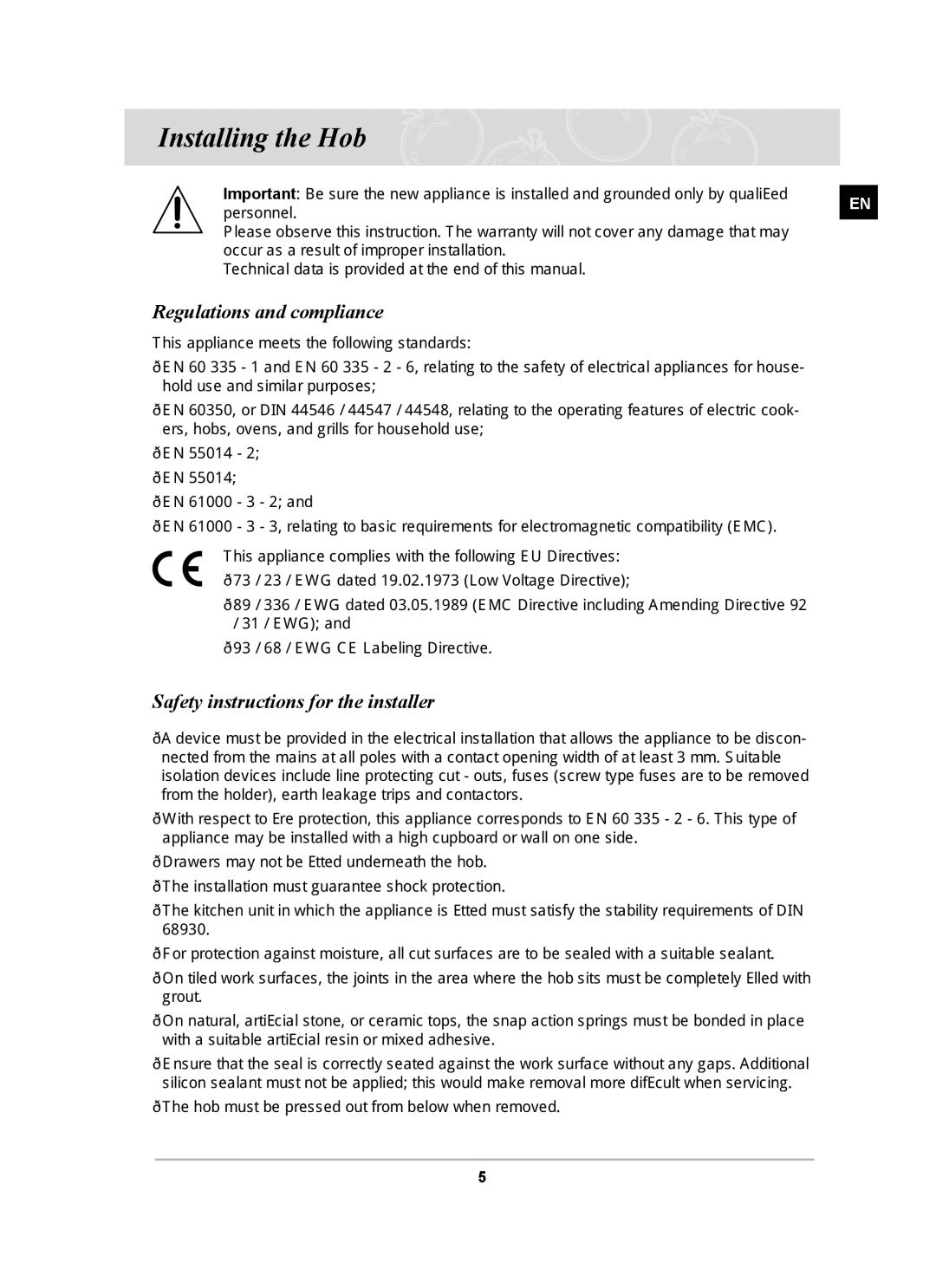C61RCBAL, C61RCCN, C61RCAST, C61RCDST specifications
Samsung has consistently been at the forefront of technology, and the latest additions to their cooktop range, including the C61RCDST, C61RCAST, C61RCCN, and C61RCBAL, exemplify the brand’s commitment to quality and innovation. These models incorporate advanced features designed to enhance cooking performance, safety, and user convenience, making them ideal choices for modern kitchens.One of the standout features across these cooktops is the induction technology, which uses magnetic fields to directly heat pots and pans, resulting in faster cooking times and precise temperature control. This technology not only improves energy efficiency but also allows for immediate adjustments in heat settings, which is particularly beneficial for delicate cooking tasks such as simmering sauces or melting chocolate.
The C61RCDST model offers a sleek and contemporary design that seamlessly blends with any kitchen aesthetic. Its controls are intuitively placed for easy operation, allowing users to adjust settings effortlessly. Furthermore, this model includes a safety lock feature, which prevents accidental activation, ensuring peace of mind in bustling cooking environments, especially in homes with young children.
The C61RCAST variant boasts a unique feature set that includes seamless touchscreen controls and smart connectivity options. With the capability to connect to mobile devices, users can monitor cooking progress or receive alerts when meals are done, making multitasking easier than ever.
The C61RCCN model focuses on versatility, offering multiple cooking zones of varying sizes to accommodate different pot and pan dimensions. This adaptiveness allows users to utilize the cooktop for various cooking methods, from boiling to frying and even sautéing, making it an excellent all-rounder for any culinary enthusiast.
Lastly, the C61RCBAL promotes eco-friendliness with its energy-saving mode, which optimizes power consumption without sacrificing performance. By reducing energy usage during standby periods, this cooktop not only saves money but also lowers environmental impact, aligning with the increasing demand for sustainable kitchen appliances.
In conclusion, Samsung’s C61 series cooktops—C61RCDST, C61RCAST, C61RCCN, and C61RCBAL—are engineered to meet the needs of today's home cooks. With advanced induction technology, safety features, smart controls, and energy efficiency, these cooktops represent a perfect blend of innovation and practicality, solidifying Samsung's reputation as a leader in kitchen technology.

